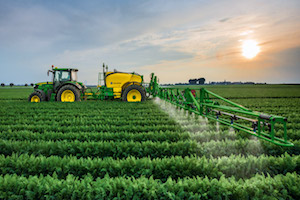Agricultural sprayers can suffer from a build-up of residue over time. To help cope with these issues, educators from the University of Nebraska-Lincoln extension recently shared tips for keeping sprayers clean and in working order throughout the season.
Experts note that both self-propelled and pull-type sprayers have complicated plumbing. When traces of pesticide residue remain in a sprayer, operators may suffer from crop reduction or loss, especially when they are using the same equipment for a wide array of herbicides. For this reason, it’s worth keeping the machine clean.
To prevent contamination, experts recommend getting between every nook and cranny during the cleaning process. This includes the tanks, valves, baffles, and hoses. Dirty screens can also continuously contaminate the rest of the system, meaning operators should be mindful of them during the cleaning process as well.
Hose quality should be a priority during the cleaning process. Poor quality hoses that crack allow residues to become lodged within the hose.
In general, all spraying equipment should be cleaned as soon as possible following use. The longer residue is allowed to remain in the equipment, the more likely it is to cause problems during future uses. The experts note that all label instructions should be followed as well, according to law, and the right products should be used for the actual cleaning process. Personal protective equipment can be utilized to prevent harmful chemicals from posing health concerns.
More information on keeping agricultural sprayers clean can be found by visiting the UNL extension website at https://cropwatch.unl.edu.
